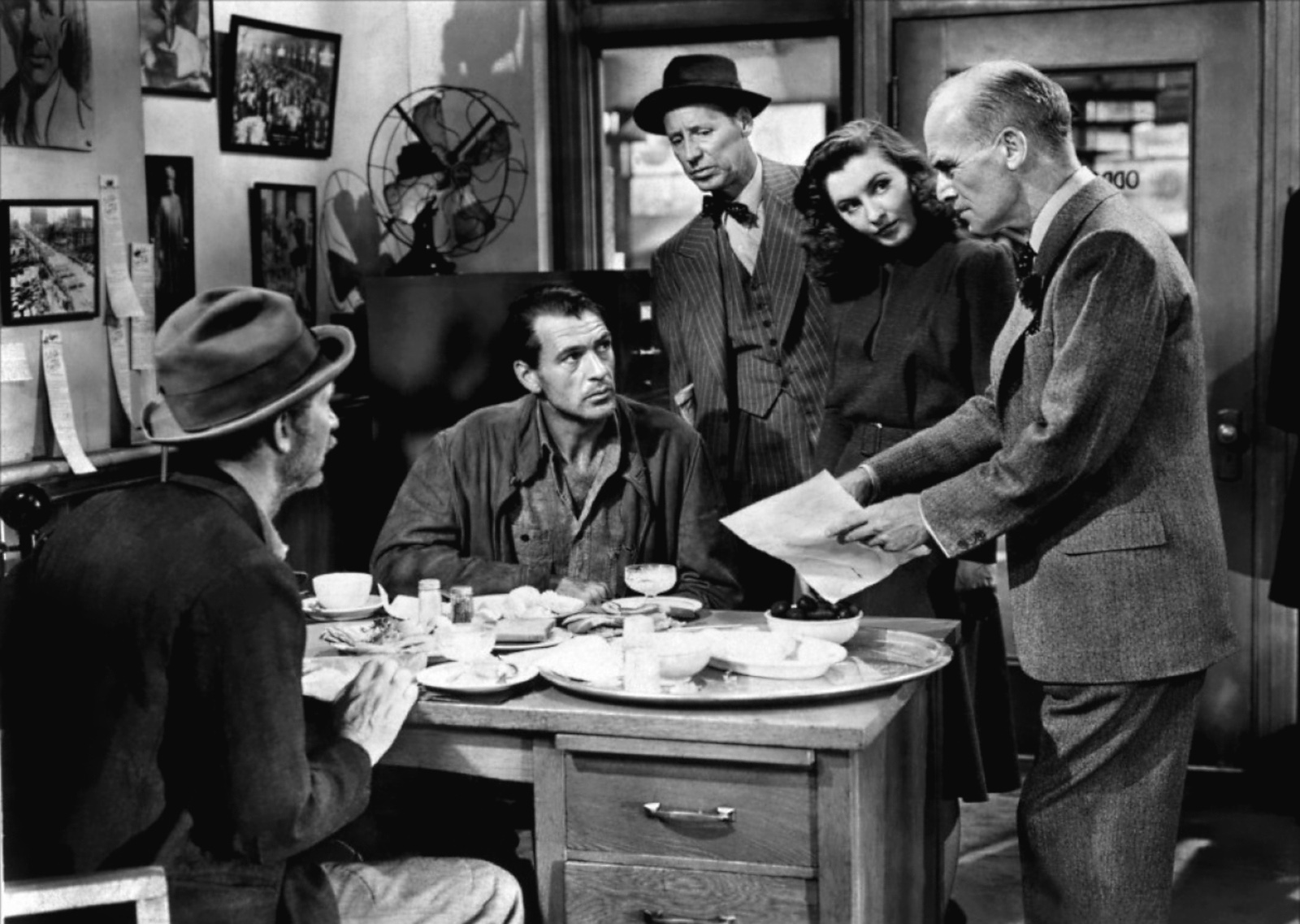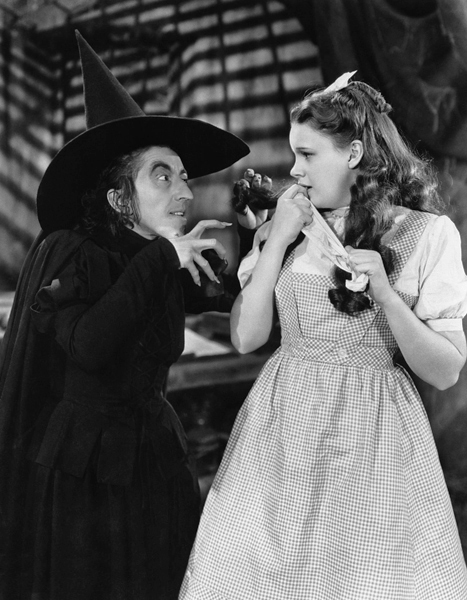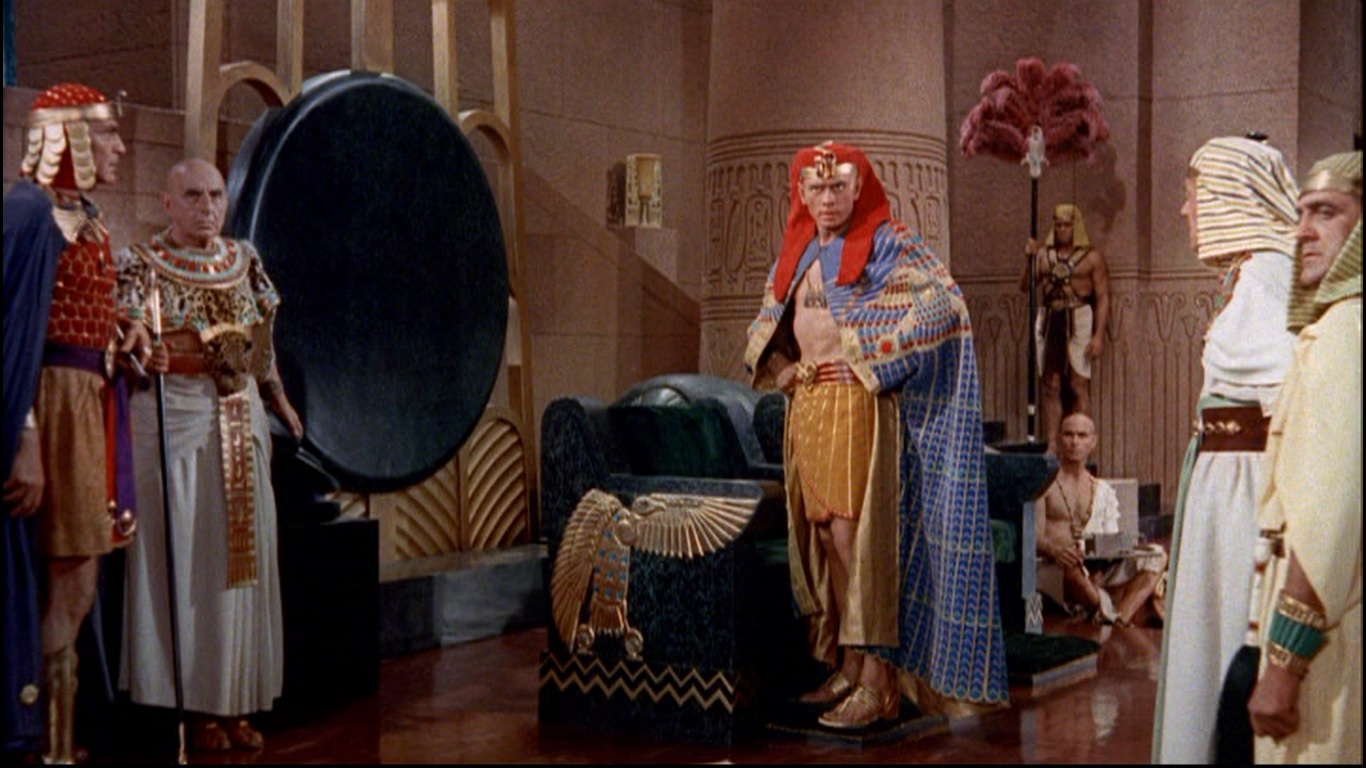|
Riding High (1950 Film)
''Riding High'' is a 1950 black-and-white musical racetrack film featuring Bing Crosby and directed by Frank Capra. The songs were performed live during filming instead of the customary lip-synching to studio recordings. The film is a remake of an earlier Capra film with screenwriter Robert Riskin titled ''Broadway Bill'' (1934). While the film is generally a light musical comedy, its plot contains an unexpected tragic turn. Plot Yale graduate Dan Brooks is expected to marry wealthy boss J.L. Higgins' daughter Margaret and join the family box-making business. He is far more interested in racing a horse he owns named Broadway Bill. Doing poorly at work, Dan and his groom Whitey leave town to enter Bill in the Imperial Derby, but first must find money for the entry fee. He and old pal Professor Pettigrew each try to con the other out of money and then must sing the Yale school song when they cannot pay the check at a restaurant. Maggie's younger sister Alice is secretly in love wit ... [...More Info...] [...Related Items...] OR: [Wikipedia] [Google] [Baidu] |
Frank Capra
Frank Russell Capra (born Francesco Rosario Capra; May 18, 1897 – September 3, 1991) was an Italian-born American film director, producer and writer who became the creative force behind some of the major award-winning films of the 1930s and 1940s. Born in Italy and raised in Los Angeles from the age of five, his rags-to-riches story has led film historians such as Ian Freer to consider him the " American Dream personified".Freer 2009, pp. 40–41. Capra became one of America's most influential directors during the 1930s, winning three Academy Awards for Best Director from six nominations, along with three other Oscar wins from nine nominations in other categories. Among his leading films were ''It Happened One Night'' (1934), ''Mr. Deeds Goes to Town'' (1936), '' You Can't Take It with You'' (1938), and '' Mr. Smith Goes to Washington'' (1939). During World War II, Capra served in the U.S. Army Signal Corps and produced propaganda films, such as the ''Why We Fight'' seri ... [...More Info...] [...Related Items...] OR: [Wikipedia] [Google] [Baidu] |
William Demarest
Carl William Demarest (February 27, 1892 – December 27, 1983) was an American character actor, known especially for his roles in screwball comedies by Preston Sturges and for playing Uncle Charley in the sitcom ''My Three Sons'' Demarest, who frequently played crusty but good-hearted roles, was a prolific film and television actor, appearing in over 140 films, beginning in 1926 and ending in the late 1970s. Before his career in motion pictures, he performed in vaudeville for two decades.Pareles, Jon (1983). "William Demarest, 91, Actor, Known for Roles in Comedies", obituary, ''The New York Times'', December 29, 1983, p. D19. Retrieved via subscription to ProQuest Historical Newspapers (Ann Arbor, Michigan), August 27, 2022. Early life Carl William Demarest was born in Saint Paul, Minnesota, the youngest of threes sons of Wilhelmina (née Lindgren) and Samuel Demarest. During William's infancy, the family moved to New Bridge, a hamlet in Bergen County, New Jersey. Demares ... [...More Info...] [...Related Items...] OR: [Wikipedia] [Google] [Baidu] |
Rand Brooks
Arlington Rand Brooks Jr. (September 21, 1918 – September 1, 2003) was an American film and television actor. Early life Brooks was born in Wright City, Missouri. He was the son of Arlington Rand Brooks, a farmer. His mother and he moved to Los Angeles when he was four, though he continued to spend summers in Wright City. Brooks continued to make visits to his hometown of Wright City into the 1950s, up to and following the death of his father in 1950. His mother and his grandfather were actors. Career Early career After leaving school, Brooks got a screen test at MGM and was given a bit part in ''Love Finds Andy Hardy'' (1938). His big fame came with his part as Charles Hamilton in ''Gone with the Wind'' (1939), a role which he later admitted he despised; he wanted to play more macho parts. He made $100 per week under contract at MGM, but when he was on loan to Selznick International Pictures for ''Gone with the Wind'', he made $500 per week. After ''Gone With the Win ... [...More Info...] [...Related Items...] OR: [Wikipedia] [Google] [Baidu] |
Margaret Hamilton (actress)
Margaret Brainard Hamilton (December 9, 1902 – May 16, 1985) was an American actress. She was best known for her portrayal of the Wicked Witch of the West, and her Kansas counterpart Almira Gulch, in Metro-Goldwyn-Mayer's film '' The Wizard of Oz'' (1939). A former schoolteacher, she worked as a character actress in films for seven years before she was offered the role that defined her public image. In later years, Hamilton appeared in films and made frequent cameo appearances on television sitcoms and commercials. She also gained recognition for her work as an advocate of causes designed to benefit children and animals and retained a lifelong commitment to public education. Early life Hamilton was born in Cleveland, Ohio and practiced her craft doing children's theater while she was a Junior League of Cleveland member. Hamilton made her debut as a "professional entertainer" on December 9, 1929, in a "program of 'heart rending songs'" in the Charles S. Brooks Theater at the C ... [...More Info...] [...Related Items...] OR: [Wikipedia] [Google] [Baidu] |
Charles Lane (actor)
Charles Lane (born Charles Gerstle Levison; January 26, 1905 – July 9, 2007) was an American character actor and centenarian whose career spanned 72 years. Lane gave his last performance at the age of 101 as a narrator in 2006. Lane appeared in many Frank Capra films, including ''Mr. Deeds Goes to Town'' (1936), '' You Can't Take It with You'' (1938), '' Mr. Smith Goes to Washington'' (1939), '' Arsenic and Old Lace'' (1944), ''It's a Wonderful Life'' (1946) and '' Riding High'' (1950). Lucille Ball frequently cast Lane as a no-nonsense authority figure and comedic foe of her scatterbrained TV character on her TV series ''I Love Lucy'', ''The Lucy–Desi Comedy Hour'' and ''The Lucy Show''. His first film role, of more than 250, was as a hotel clerk in '' Smart Money'' (1931) starring Edward G. Robinson and James Cagney. Early life Lane's father, an executive at the Fireman's Fund Insurance Company, was instrumental in rebuilding San Francisco after the 1906 earthquak ... [...More Info...] [...Related Items...] OR: [Wikipedia] [Google] [Baidu] |
Irving Bacon
Irving Bacon (born Irving Von Peters; September 6, 1893 – February 5, 1965) was an American character actor who appeared in almost 500 films. Early years Bacon was the son of entertainers Millar Bacon and Myrtle Vane. He was born in St. Joseph, Missouri, and grew up in San Diego, California. Career Bacon played on the stage for a number of years before getting into films in 1912 in Mack Sennett productions. The actor returned to the Sennett studio in 1924, and appeared frequently in Sennett's silent and sound comedies as a supporting actor. By 1933 Bacon was so well established as a utility player that he was pressed into service to replace Andy Clyde -- wearing Clyde's "old man" costume and makeup -- in a Sennett comedy. Irving Bacon was sometimes cast in films directed by Lloyd Bacon (incorrectly named as his brother in several sources) such as ''The Amazing Dr. Clitterhouse'' (1938). He often played comical "average guys" in scores of feature films; in 1939 alone he app ... [...More Info...] [...Related Items...] OR: [Wikipedia] [Google] [Baidu] |
Joe Frisco
Joe Frisco (born Louis Wilson Joseph; November 4, 1889 – February 18, 1958) was an American vaudeville performer who first made his name on stage as a jazz dancer, but later incorporated his stuttering voice to his act and became a popular comedian. Life and career He was born Louis Wilson Joseph in Milan, Illinois on November 4, 1889. In the mid and late 1910s, he performed with some of the first jazz bands in Chicago and New York City, including Tom Brown's Band from Dixieland, the Original Dixieland Jass Band, and the Louisiana Five. He made his Broadway debut in the Ziegfeld Follies in 1918. Frisco was a mainstay on the vaudeville circuit in the 1920s and 1930s. His popular jazz dance act, called by some the "Jewish Charleston", was a choreographed series of shuffles, camel walks and turns. It was usually performed to Darktown Strutters' Ball. It, or at least a minute or so of it, can be seen in the film ''Atlantic City'' (1944). He typically wore a derby hat, and had ... [...More Info...] [...Related Items...] OR: [Wikipedia] [Google] [Baidu] |
Douglass Dumbrille
Douglass Rupert Dumbrille (October 13, 1889 – April 2, 1974) was a Canadian actor who appeared regularly in films from the early 1930s. Life and career Douglass Dumbrille ( ) was born in Hamilton, Ontario. As a young man, he was employed as a bank clerk in Hamilton while pursuing an interest in acting. He eventually left banking for the theatre, finding work with a stock company that led him to Chicago, Illinois, and another that toured the United States. In 1913, the East Coast film industry was flourishing and that year he appeared in the film ''What Eighty Million Women Want'', but it would be another 11 years before he appeared on screen again. In 1924, he made his Broadway debut and worked off and on in the theatre for several years while supplementing his income by selling such products as car accessories, tea, insurance, real estate, and books. During the Great Depression, Dumbrille resumed his screen career in Hollywood, where he specialized in playing secondar ... [...More Info...] [...Related Items...] OR: [Wikipedia] [Google] [Baidu] |
Frankie Darro
Frankie Darro (born Frank Johnson, Jr.; December 22, 1917 – December 25, 1976) was an American actor and later in his career a stuntman. He began his career as a child actor in silent films, progressed to lead roles and co-starring roles in adventure, western, dramatic, and comedy films, and later became a character actor and voice-over artist. He is perhaps best known for his role as Lampwick, the unlucky boy who turns into a donkey in Walt Disney's second animated feature, ''Pinocchio'' (1940). In early credits, his last name was spelled Darrow. Early life Frankie Darro was born on Saturday, December 22, 1917, in Chicago, Illinois, as Frank Johnson, Jr. His parents, Frank Johnson, Sr. and his wife Ada, were known as ''The Flying Johnsons'', a acrobatics and tightrope walking act with the Sells Floto Circus; it was a profession that his father attempted to train him in, and he cured Frankie's fear of heights by having him walk on a length of tightrope wire, gradually rai ... [...More Info...] [...Related Items...] OR: [Wikipedia] [Google] [Baidu] |
Harry Davenport (actor)
Harold George Bryant Davenport (January 19, 1866August 9, 1949) was an American film and stage actor who worked in show business from the age of six until his death. After a long and prolific Broadway career, he came to Hollywood in the 1930s, where he often played grandfathers, judges, doctors, and ministers. His roles include Dr. Meade in ''Gone with the Wind'' (1939) and Grandpa in ''Meet Me in St. Louis'' (1944). Bette Davis once called Davenport "without a doubt . .the greatest character actor of all time." Early life Harry Davenport was born in Canton, Pennsylvania, where his family lived during the holidays. He also grew up in Philadelphia. Harry came from a long line of stage actors; his father was thespian Edward Loomis Davenport and his mother, Fanny Vining Davenport, was an English actress and a descendant of the renowned 18th-century Irish stage actor Jack Johnson. His sister was actress Fanny Davenport. Career He made his stage debut at the age of f ... [...More Info...] [...Related Items...] OR: [Wikipedia] [Google] [Baidu] |
Percy Kilbride
Percy William Kilbride (July 16, 1888 – December 11, 1964) was an American character actor. He made a career of playing country hicks, most memorably as Pa Kettle in the ''Ma and Pa Kettle'' series of feature films. Early life Kilbride was born in San Francisco, California, the son of Elizabeth (née Kelly), a native of Maryland, and Owen Kilbride, a Canadian. Career Kilbride began working in the theater at the age of 12 and eventually left to become an actor on Broadway. He first played an 18th-century French dandy in ''A Tale of Two Cities''. His film debut was as Jakey in ''White Woman'' (1933), a Pre-Code film starring Carole Lombard. He left Broadway for good in 1942, when Jack Benny insisted that Kilbride reprise his Broadway role in the film version of ''George Washington Slept Here''. According to Benny, Percy Kilbride was the same character offscreen and on: quiet and friendly but principled, refusing to be paid more or less than what he considered a fair salary. ... [...More Info...] [...Related Items...] OR: [Wikipedia] [Google] [Baidu] |
Clarence Muse
Clarence Muse (October 14, 1889 – October 13, 1979) was an American actor, screenwriter, director, singer, and composer. He was the first African American to appear in a starring role in a film, 1929's ''Hearts in Dixie''. He acted for 50 years, and appeared in more than 150 films. He was inducted into the Black Filmmakers Hall of Fame in 1973. Life and career Born in Baltimore, Maryland, the son of Alexander and Mary Muse, he studied at Dickinson School of Law in Carlisle, Pennsylvania for one year in 1908. He left because he believed he could not make a living in law as an African American. He later received an honorary doctorate of laws from Dickinson School of Law in 1978. By the 1920s Muse was acting in New York during the Harlem Renaissance with two Harlem theatres, Lincoln Players and Lafayette Players. While with the Lafayette Players, Muse worked under the management of producer Robert Levy on productions that helped black actors to gain prominence and resp ... [...More Info...] [...Related Items...] OR: [Wikipedia] [Google] [Baidu] |





_1.jpg)